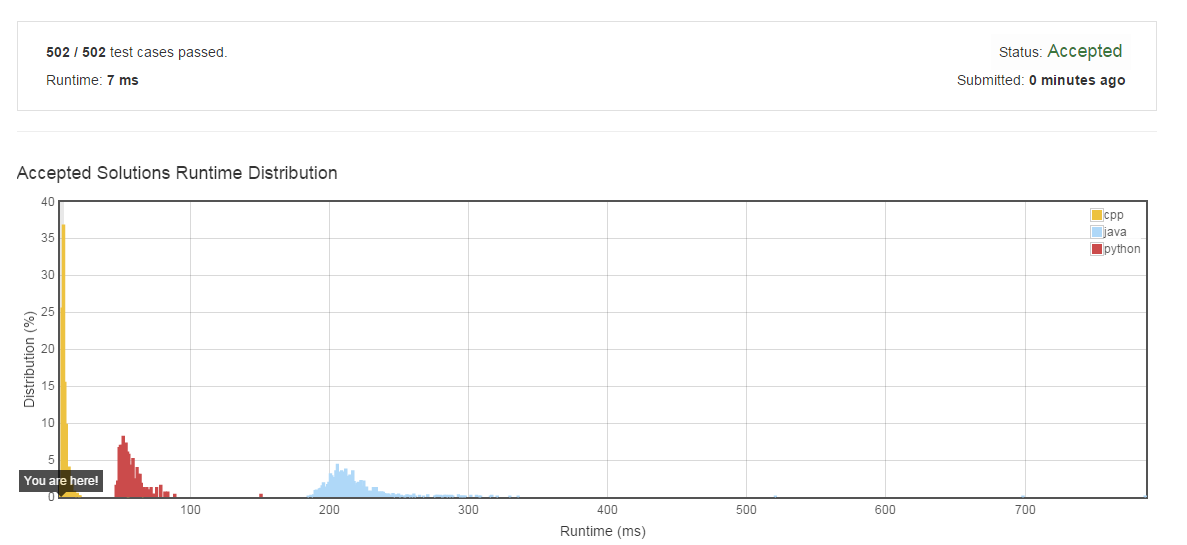本文主要是介绍[LeetCode]172.Factorial Trailing Zeroes,希望对大家解决编程问题提供一定的参考价值,需要的开发者们随着小编来一起学习吧!
题目
Given an integer n, return the number of trailing zeroes in n!.
Note: Your solution should be in logarithmic time complexity.
分析
朴素解法:
首先求出n!,然后计算末尾0的个数。(重复÷10,直到余数非0)
该解法在输入的数字稍大时就会导致阶乘得数溢出,不足取。
O(logn)解法:
考虑n!的质数因子。
后缀0总是由质因子2和质因子5相乘得来的。如果我们可以计数2和5的个数,问题就解决了。考虑下面的例子:
n = 5时 5!的质因子中 (2 * 2 * 2 * 3 * 5)包含一个5和三个2。因而后缀0的个数是1。
n = 11时 11!的质因子中(2^8 * 3^4 * 5^2 * 7)包含两个5和三个2。于是后缀0的个数就是2。
我们很容易观察到质因子中2的个数总是大于等于5的个数。因此只要计数5的个数就可以了。那么怎样计算n!的质因子中所有5的个数呢?
观察15! = 有3个5(来自其中的5, 10, 15), 所以计算n/5就可以。但是25! = 有6个5(有5个5来自其中的5, 10, 15, 20, 25, 另外还有1个5来自25=(5*5)的另外一个5),所以除了计算n/5, 还要计算n/5/5, n/5/5/5, n/5/5/5/5, …, n/5/5/5,,,/5直到商为0。
代码
/*------------------------------------* 日期:2015-02-07* 作者:SJF0115* 题目: 172.Factorial Trailing Zeroes* 网址:https://oj.leetcode.com/problems/factorial-trailing-zeroes/* 结果:AC* 来源:LeetCode* 博客:---------------------------------------*/#include <iostream>#include <cstring>#include <vector>#include <queue>#include <unordered_set>using namespace std;class Solution {public:int trailingZeroes(int n) {int count_five = 0;while ( n > 0) {int k = n / 5;count_five += k;n = k;}//whilereturn count_five;}};int main(){Solution s;int n = 10;int result = s.trailingZeroes(n);// 输出cout<<result<<endl;return 0;}
运行时间
这篇关于[LeetCode]172.Factorial Trailing Zeroes的文章就介绍到这儿,希望我们推荐的文章对编程师们有所帮助!








